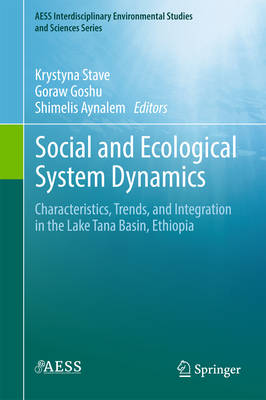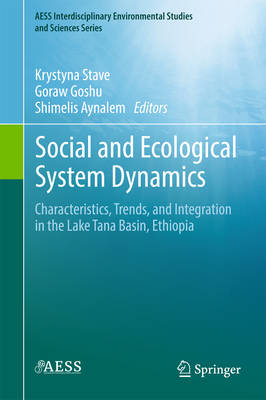
- Afhalen na 1 uur in een winkel met voorraad
- Gratis thuislevering in België vanaf € 30
- Ruim aanbod met 7 miljoen producten
- Afhalen na 1 uur in een winkel met voorraad
- Gratis thuislevering in België vanaf € 30
- Ruim aanbod met 7 miljoen producten
Zoeken
Social and Ecological System Dynamics
Characteristics, Trends, and Integration in the Lake Tana Basin, Ethiopia
€ 158,45
+ 316 punten
Omschrijving
This book is a social--ecological system description and feedback analysis of the Lake Tana Basin, the headwater catchment of the Upper Blue Nile River. This basin is an important local, national, and international resource, and concern about its sustainable development is growing at many levels. Lake Tana Basin outflows of water, sediments, nutrients, and contaminants affect water that flows downstream in the Blue Nile across international boundaries into the Nile River; the lake and surrounding land have recently been proposed as a UNESCO Biosphere Reserve; the basin has been designated as a key national economic growth corridor in the Ethiopian Growth and Transformation Plan. In spite of the Lake Tana Basin's importance, there is no comprehensive, integrated, system-wide description of its characteristics and dynamics that can serve as a basis for its sustainable development. This book presents both the social and ecological characteristics of the region and an integrated, system-wide perspective of the feedback links that shape social and ecological change in the basin. Finally, it summarizes key research needs for sustainable development.
Specificaties
Betrokkenen
- Uitgeverij:
Inhoud
- Aantal bladzijden:
- 652
- Taal:
- Engels
- Reeks:
Eigenschappen
- Productcode (EAN):
- 9783319457536
- Verschijningsdatum:
- 13/04/2017
- Uitvoering:
- Hardcover
- Formaat:
- Genaaid
- Afmetingen:
- 165 mm x 244 mm
- Gewicht:
- 1369 g

Alleen bij Standaard Boekhandel
+ 316 punten op je klantenkaart van Standaard Boekhandel
Beoordelingen
We publiceren alleen reviews die voldoen aan de voorwaarden voor reviews. Bekijk onze voorwaarden voor reviews.










